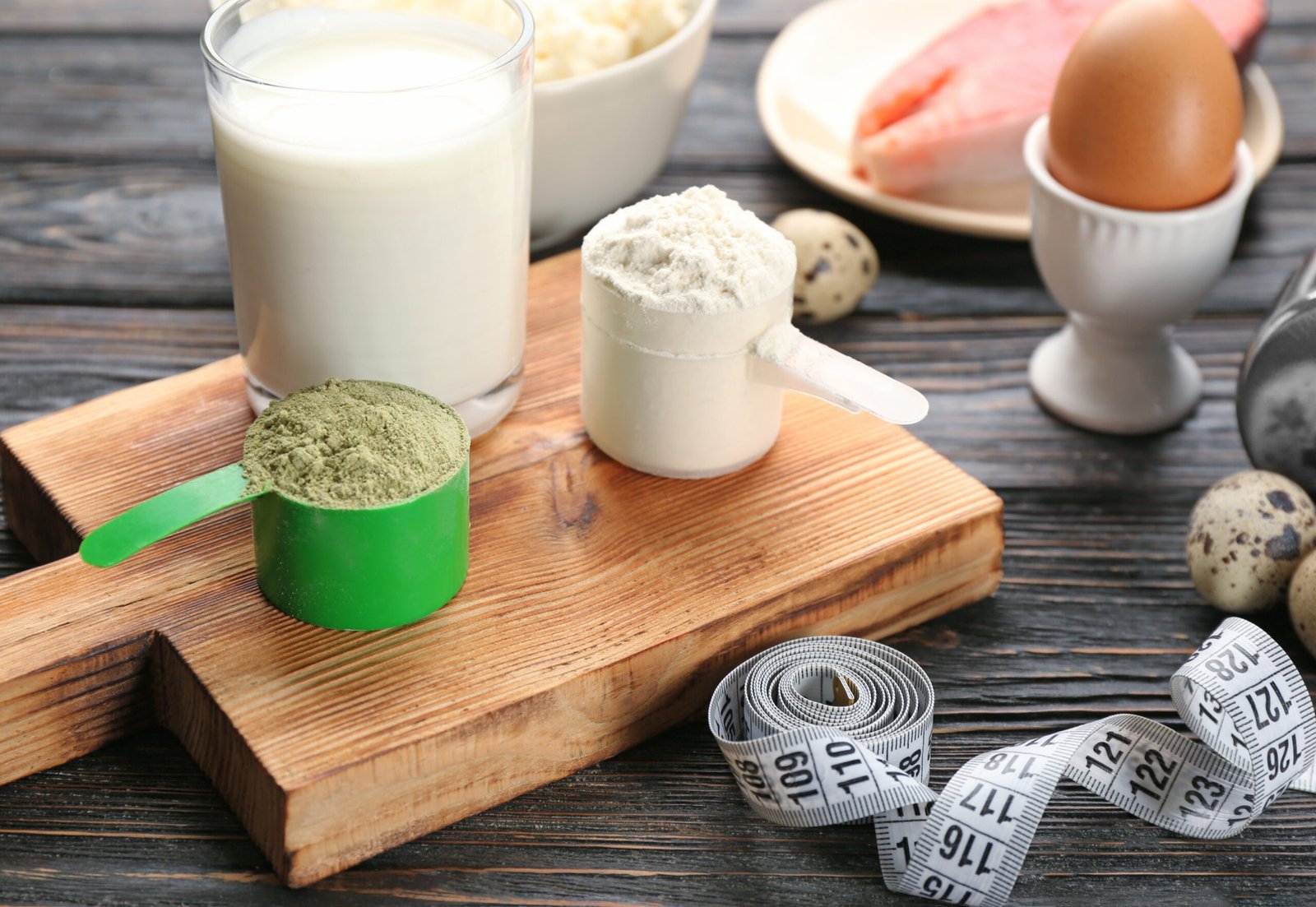Many people don’t realize the important of protein for health and fitness. Protein is important for several reasons, including muscle repair and growth, satiety and weight management, hormone production, immune function, and overall health, among other things. How much protein do you need to achieve your fitness goal depends on your goal.
When considering protein requirements for different fitness goals, it’s important to tailor intake to the specific objective, whether it be weight loss, muscle gain, or general fitness. Below are some quick recommendations for each.
Weight Loss
- Goal: Preserve muscle mass while losing fat.
- Recommendation: Aim for 1.2 to 1.6 grams of protein per kilogram of body weight per day.
- Rationale: Higher protein intake helps maintain muscle mass, boosts satiety, and increases thermogenesis (calories burned during digestion).
Muscle Gain
- Goal: Promote muscle hypertrophy (growth).
- Recommendation: Aim for 1.6 to 2.2 grams of protein per kilogram of body weight per day.
- Rationale: Sufficient protein intake is crucial to repair and build muscle tissues after resistance training and other intense workouts.
General Fitness
- Goal: Maintain muscle mass and support overall health.
- Recommendation: Aim for 1.0 to 1.2 grams of protein per kilogram of body weight per day.
- Rationale: Moderate protein intake supports muscle maintenance and recovery, which is important for regular physical activity.
Additional Tips
- Spread Protein Intake: Distribute protein intake evenly across meals to maximize muscle protein synthesis.
- Quality Matters: Choose high-quality protein sources such as lean meats, dairy, eggs, legumes, and plant-based proteins.
- Hydration: Ensure adequate hydration, especially when increasing protein intake, to support kidney function. There are many additional benefits of drinking water.
- Balanced Diet: Combine protein with a balanced intake of carbohydrates and fats for optimal health and performance.
Protein Sources
- Animal-based: Chicken, turkey, beef, pork, fish, eggs, dairy products (milk, yogurt, cheese).
- Plant-based: Lentils, chickpeas, beans, quinoa, tofu, tempeh, edamame, nuts, and seeds. For a complete list, visit here.
Practical Example for Each Goal
- Weight Loss (70 kg person): 84 to 112 grams of protein per day.
- Muscle Gain (70 kg person): 112 to 154 grams of protein per day.
- General Fitness (70 kg person): 70 to 84 grams of protein per day.
By adhering to these guidelines, you can optimize your protein intake to meet your specific fitness goals effectively. If you want to fine tune your protein quantity based on your personalized exercise and nutrition habits, let a health and fitness coach lead the way.

